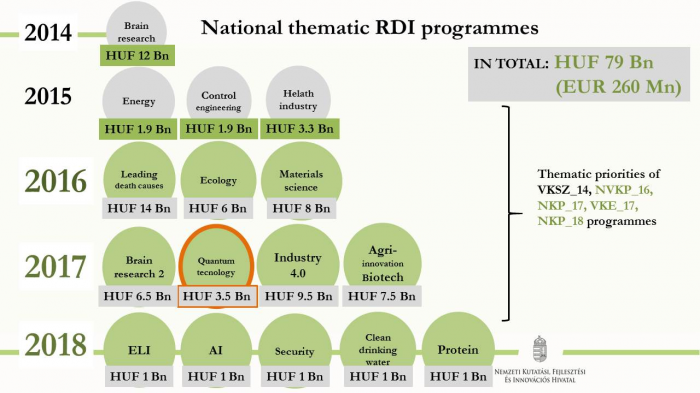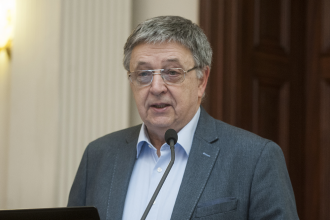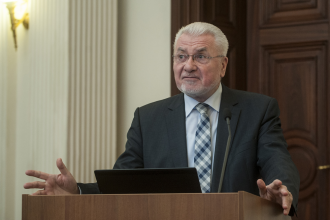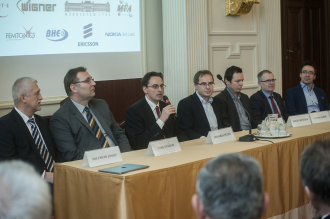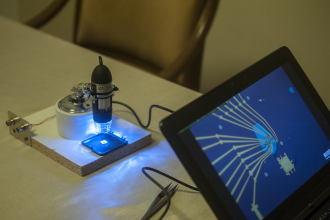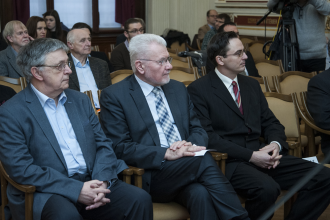He added: the National Quantum Technology Programme fits into the series of national thematic R&D programmes.
So far, the National Research, Development and Innovation (NRDI) Fund has funded 16 thematic programmes with altogether HUF 80 billion (EUR 260 million) in areas relating to major societal, economic and environmental challenges.
According to József Pálinkás, the National Quantum Technology Programme will result in prototypes which will greatly contribute scientist to the creation of the quantum computer in the future.
Péter Domokos, corresponding member of the Hungarian Academy of Sciences (HAS), professor at HAS Wigner Research Centre for Physics said: the HunQuTech consortium is responsible for the implementation of the National Quantum Technology Programme. The consortium comprises the HAS Wigner Research Centre for Physics, Budapest University of Technology and Economics (BME), Eötvös Loránd University (ELTE), the HAS Centre for Energy Research, Ericsson Hungary, Nokia Bell Labs, Bonn Hungary Electronics Kft. and Femtonics. The consortium is lead by the Wigner Research Centre for Physics.
Péter Domokos, who is also the scientific leader of the consortium, reported that during the four-year operation of the consortium the partners will strive to connect Hungary to the currently developing European quantum internet, maintain and improve the competitiveness of researchers in quantum technology and raise the number of quantum technology engineers and researchers in Hungary.
Péter Domokos noted that during its four-year operation the consortium will focus on activities such as quantum cryptography communication between two points and the execution of quantum bit operations (which form the basis of quantum computing). He explained: the programme is about preparation and the creation of the necessary laboratories. Test experiments will start in the second year, and the application of the assets created by the professionals will be applied in the third year. The practical implementation of developments will come into focus in the last year of the programme.
Péter Domokos said: the world leader in quantum informatics today is Austria, while China takes the lead in the practical application of quantum technology and the USA in the development of the quantum computer. The European Union has launched a large-scale EUR 1 billion programme to promote its knowledge advantage in technological transfer.
In response to a question, the consortium partners explained that it would pose a national security risk if Hungary was left out from the evolution of quantum technology and thus failed to have a deep understanding of the structure and operation of cryptographic networks. This would make Hungary vulnerable to countries pioneering this area, such as China or other countries.







